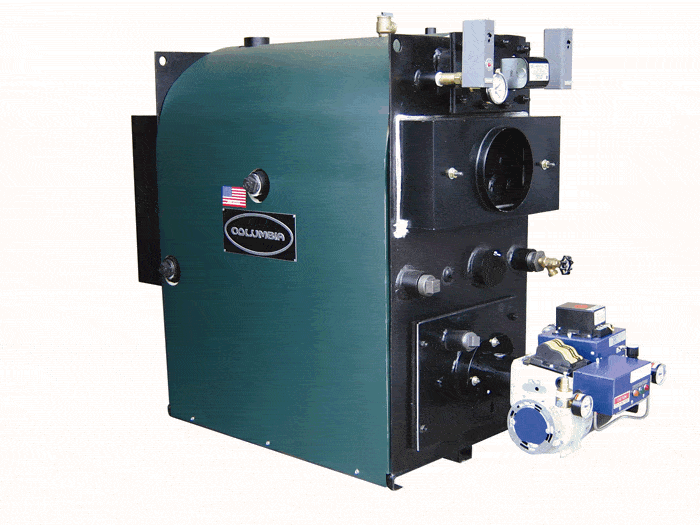With the rising cost of natural gas, it’s no wonder that many people are switching to oil boilers for their primary heat source. Oil furnaces are coming back in a big way because of their cost savings and environmental friendliness. The following details the mechanisms, types and advantages of oil burners over traditional heating methods.

How it Works
Oil boilers are heating appliances that atomize oil into a spray, which is then injected into a chamber and ignited. A simple oil pump delivers oil to a fuel injecting spray nozzle before a fan blows the atomized oil spray into the chamber for ignition. The air inside the heat exchanger warms and rises, forming cold air pockets below to be warmed. Warm air gets blown into heat ducts and distributed through them.
A pressure regulator functions to deliver the user’s desired heat output, while an electromagnetic valve acts as a safety mechanism to prevent oil drips during inactivity and protect against potentially hazardous misfires. Modern oil furnaces have been engineered to be extremely safe and energy efficient.
Types
Although the basic structure of an oil burner is similar across the board, there are a variety of types to choose from. One type, the horizontal furnace, is low and close to the ground, designed for areas with low ceilings. It intakes air on the side of the furnace and outputs into an air duct. Another type, the waste oil furnace, recycles old oil that has been used in various capacities. Although this reclaimed oil must be filtered, its use is a clever way to save money and the environment. The upflow oil burner is the most popular type, taking an input of air from the bottom of the appliance and outflowing into a duct.
Advantages
Oil boilers are advantageous in a number of ways. First and foremost, it is an environmentally friendly way to heat your home. Oil furnaces convert 83 % of their fuel directly into heat according to the United States Department of Energy. Compound this with the potential use of recycled waste oil and you have an extremely efficient appliance. Moreover, this energy efficiency translates into savings for the end consumer. With such a high percentage of oil converting directly to heat, you are able to spend less on fuel.
Another major advantage of an oil burner is its extended lifespan. In general, you can expect an oil furnace to last between 15 and 20 years with little to no maintenance outside of an occasional oil filter replacement. Other heating methods are far less reliable.
A third advantage is fuel cost. Depending on where you live, oil is often the least expensive heating method with oil cost around $1.50 a gallon. Burning oil is almost always cheaper than natural gas and often less expensive than propane.
Safety
Oil furnaces do not produce the same air toxins as traditional heating methods. Natural gas combustion produces carbon monoxide gas that is hazardous to human health. This potential hazard is absent from oil burners. Furthermore, oil does not explode in the presence of exposure to an open flame. This is a major safety advantage over natural gas, which is highly combustible.














